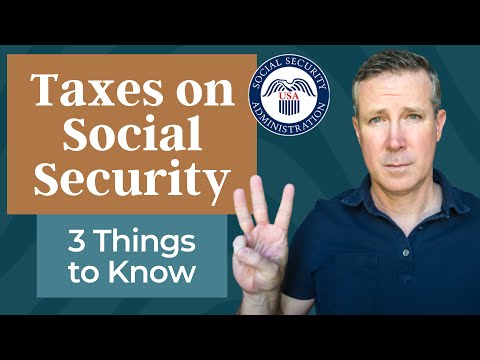When it comes to navigating the twists and turns of retirement finances, one question that pops up like a stubborn weed is, “What age do you stop paying taxes on Social Security?” It’s a question many are eager to bury once and for all. Let’s put our green thumbs to work and unearth the facts, shall we?
Understanding the Rules: What Age Do You Stop Paying Taxes on Social Security?
Ah, the golden years: a time for relaxation, pursuing passions, and for some puzzling question—why am I still paying taxes on my Social Security benefits? Well, folks, brace yourselves. Despite the myths floating around faster than a hot tip in a bull market, Social Security can potentially be subject to tax regardless of your age. That’s right, age is just a number, and Uncle Sam isn’t cutting you off the hook based on how many candles are on your birthday cake.

Exploring the Tax Threshold: How Much Can You Make Without Paying Taxes Over 65?
Take a stroll down Tax Threshold Lane, where it’s all about the numbers. For those age 65 and over, it’s essential to grasp the income brackets that determine whether your Social Security benefits will feel the pinch of taxation. It’s not just about the benefits; other incomes, including dividends and interest, can tip the scales.
As of the latest guidelines in 2023, generally, individuals with a combined income exceeding $25,000 may start to see their Social Security benefits taxed. For couples, that threshold goes up, like a gentle hill, to $32,000. It’s like figuring out “How To calculate cash on cash return,” except, in this case, you’re calculating the likelihood of your Social Security being taxed.
Real-world examples? Picture Judy, who decided to become an unintentional entrepreneur post-retirement, making artisanal jams. If Judy’s income, including her spiced blueberry bliss profits, exceeds the threshold, she’ll owe taxes on her Social Security. It’s a sticky situation, but knowledge is the key to managing it.

| Factor | Detail |
|---|---|
| Age Limit | No age limit – Social Security is potentially taxable at any age. |
| Tax Requirement | If combined income exceeds $25,000 for individuals or $32,000 for married couples filing jointly, Social Security benefits may be subject to income tax. |
| Only Source of Income | If Social Security benefits are your only source of income, you are less likely to pay tax on those payments, as they might fall below the taxable threshold. |
| Common Misconception | Social Security benefits do not become non-taxable after age 70 or any other specific age. |
| Filing Taxes | Age does not exempt individuals from filing taxes; tax obligations are based on income, not age. |
| Income Components | For determining Social Security taxation, income includes wages, self-employment, dividends, and other taxable income as well as nontaxable interest and half of your Social Security benefits. |
| IRS Threshold | Taxation depends on total income: under $25,000 for single filers or $32,000 for married filing jointly may lead to no taxes on Social Security benefits. |
Breaking Down the Ages: Distinctions in Social Security Taxation
Age is more than just a milestone; it’s a marker that may change the landscape of taxation on your Social Security benefits. But before you get wrapped up in the numbers game, let’s set the record straight: no age grants magical immunity from taxes on these benefits.
Here’s the age by age play-by-play: prior to hitting your full retirement age, your benefits and taxes walk hand in hand depending on your income. Cross that threshold, and the taxation still plays by roughly the same rules. It’s like a dance where the music never changes, only the tempo does.
Legislative logic says it’s geared towards fairness, making sure those with broader shoulders carry a heavier load. It’s the cornerstone of a system that aims to maintain balance but can sometimes lead to grey-haired grievances.

The Critical Question: At What Age Do You Stop Paying Taxes on Social Security?
Alright, let’s cut to the chase. At what age do you stop paying taxes on Social Security? Buckle your financial seatbelts; the answer is never as straightforward as a Sunday drive. Simply put, taxation on benefits ceases when you no longer have income that crosses the threshold set by the IRS.
Gurus in policy circles argue that the design targets equitable distribution, but that’s cold comfort if you’re still writing checks to the IRS while trying to enjoy your post-work life. And when we look at the demographics, it’s clear—a good chunk of retirees are still getting taxed on their benefits, gums and all.

Factors Impacting Taxation: Why Do I Owe Taxes on Social Security?
Now, let’s delve into the “why do I owe taxes on Social Security?” mystery. Imagine your Social Security benefits are a slice of pie. Any additional income—like pensions, wages, or those Wilbur hot Springs vacation rental earnings—is like extra dollops of whipped cream on top. Too much, and suddenly you’re in the taxable zone.
Take it from the pros: adjust your financial recipe with tax-planning strategies to keep your benefits as tax-free as grandma’s kitchen. Perhaps shifting assets or fine-tuning your income streams could mean more pie with less tax.
Also, there’s no dodging the truth—combine your benefits with other substantial sources of income, and you might just find yourself dining with the taxman. Like a seasoned chef, learn to blend your income sources to keep the tax bite as painless as a butter knife.
Tax Strategies and Management for Seniors
Navigating the labyrinth of tax strategies can make you feel like you’re solving a Rubik’s cube blindfolded. But here’s a guiding light—seniors can utilize specific tax breaks and credits to lighten the load. Think of it as legal financial gymnastics.
Diligent seniors, listen up: explore every nook and cranny of tax deductions available to you – from medical expenses to charitable contributions. And while tax planning might not be as thrilling as planning a heist, getting it right is your ticket to a more prosperous retirement.
Policy Evolution: How Social Security Taxation Has Changed
Our tax policy journey is like leafing through a photo album. The pictures of Social Security taxation policies throughout the years show a story of change, challenge, and occasionally, controversy.
The evolution of these policies adjusts to the drumbeat of socioeconomic shifts, but let’s not mince words—the impact on Joe and Jane Retiree is palpable. With every turn of the policy pages, the weight felt in bank balances shifts slightly.
While policy buffs debate the next moves on the chessboard of Social Security taxation, one thing is for sure—the game is far from over.
Planning for the Golden Years: Financial Considerations Beyond Taxes
Let’s step outside the tax box for a moment and consider the full monty of financial planning. Taxes are just one piece of the pie—there’s also healthcare, estate planning, and the labyrinth of long-term care to navigate through.
Crafting a strategy that covers all bases, like a blanket at a picnic, ensures you can savor your retirement without worrying about the ants. Remember, getting your ducks in a row now means you can float smoothly later.
A Fresh Take on Retirement: Innovative Strategies to Maximize Your Benefits
Welcome to the brave new world of retirement, where innovative strategies are as precious as heirloom seeds in a gardener’s apron. From Mila Kunis Children‘s’ educational funds to new age retirement pursuits, being savvy with your Social Security and taxes is your ticket to a bountiful harvest.
We’ve got real retirees who’ve cracked the code, taking their savvy plays from paper to practice. Their stories are like fairy tales for the financially minded.
So, folks, remember: while there’s no escaping taxes on Social Security based on age alone, with the right know-how, your golden years can still be as golden as you’ve dreamed. Keep your financial garden thriving; after all, retirement should be the season of reaping what you’ve sown.
Social Security Tax Trivia: When Do Uncle Sam’s Hands Get Tied?
No Magic Number, But…
Hold your horses if you think there’s a specific age where the tax man waves goodbye forever on your Social Security benefits. Age, in this case, really is just a number. Taxation on Social Security isn’t about hitting a birthday milestone and poof—no more taxes! Instead, it’s all about the greenbacks you rake in from other sources. Yes, other income dictates whether or not your Social Security benefits take a tax hit.
Working Golden Years
Say you’re 67 and living the retirement dream, but you’ve got this itch to stay active and decide to consult or work part-time. Combine that with withdrawals from your retirement accounts, and suddenly you’re not just collecting Social Security; you’re also adding to your annual income. And Uncle Sam? He’s keeping an eye on that. If it goes above a certain threshold, you may need to pay taxes on up to 85% of your Social Security benefits. So, working well into your golden years can mean your Social Security benefits get a tax haircut.
Silver Linings and Silver Ages
Now, don’t get your knickers in a twist. There’s a silver lining. Social Security wasn’t meant to be entirely taxable, and for many, it isn’t. There’s a formula that determines if, and how much, your benefits will contribute to your tax bill. It considers your combined income, which is your adjusted gross income plus any nontaxable interest and half of your Social Security benefits. Stay within the limits, and you could dodge the tax bullet.
Capital Gains Considerations
You might be thinking, what about other moola, like the cash from selling your home or investment gains? Well, after you blow out 65 candles on your birthday cake, the rules around capital Gains tax over 65( might sweeten the deal. Senior taxpayers can potentially exclude a significant amount of capital gains from their income, providing a helpful buffer against taxes. Still, it’s a good idea to chew over this with a tax pro because these potential savings can impact the taxation of your Social Security benefits.
Bottom Line Banter
Alright, let’s put it on the table: there’s no escaping Father Time, but tax on Social Security benefits doesn’t just evaporate with age. It’s a tangle of income streams and thresholds that decide if the taxman comes a-knocking. Age gives you wisdom, experience, and potentially some tax breaks, but it’s the dough you bring in that really calls the shots on Social Security taxes. So keep an eye on the numbers, and maybe, just maybe, you can give those taxes the slip!

At what age is Social Security tax free?
Sorry to burst your bubble, but Social Security isn’t ever completely tax-free based on age alone. However, if you keep your combined income below certain limits, Uncle Sam can’t touch your Social Security!
At what age is Social Security no longer taxed 2023?
Boy oh boy, it’s still the same story in 2023! Your Social Security might be taxed depending on your total income, but age itself doesn’t give you a magical tax break.
How much can a retired person make without paying taxes?
Here’s the scoop: In 2023, if you’ve reached full retirement age, you can pocket up to $50,520 before half your Social Security benefits start getting taxed. But mind you, earning more doesn’t mean Uncle Sam will slap you with taxes on everything.
At what age do you no longer pay taxes?
The golden years come with perks! Typically, when you hit the big 65, you might be able to say goodbye to filing taxes if your income falls below the IRS thresholds. It’s like your own financial retirement party!
How do I get the $16728 Social Security bonus?
Hold your horses! The so-called $16,728 Social Security “bonus” is really just a smart way of maximizing your benefits. You can’t just snap your fingers to get it, though. It’s all about working longer and delaying your claim to increase your monthly checks.
How do I avoid paying taxes on Social Security?
Well, aren’t we eager to dodge those taxes! To keep your Social Security from the taxman, keep your combined income nice and low—within IRS limits, of course. Sounds simple, doesn’t it? But remember, it’s a balancing act!
At what age can I earn unlimited income while on Social Security?
Unlimited earnings without affecting your Social Security? Heck yes, but only once you reach full retirement age. Before that, keep an eye on those earnings, or Social Security might play take-backsies with your benefits.
Do I have to file a tax return if I only receive Social Security?
Filing taxes can be a real drag, but if Social Security is your only gig, you might be off the hook. However, it’s worth checking the IRS rules—THEY decide if you get to skip the paperwork party or not.
Can I get a tax refund if my only income is Social Security?
Guess what? You might just be lucky enough to get a tax refund if Social Security is your only income. Yeah, that’s right—even if you didn’t pay a dime in taxes throughout the year!
Does a 70 year old have to pay taxes on Social Security?
So you’re 70 and wondering about taxes on your Social Security? Well, your age doesn’t exempt you, but if Social Security is all you’ve got coming in, you’ll likely avoid the tax bite.
Does Social Security count as income?
Sure as rain, Social Security does count as income. But hey, it’s not all doom and gloom—you won’t always owe taxes on it. The IRS has its own road map to decide if it’s taxable or not.
What is the average Social Security check at 62?
Cashing those checks at 62? The average Social Security check is a modest sum, maybe around $1,500, depending on your work history. Just enough to cover the basics!
What is the standard deduction for seniors over 65 in 2023?
Seniors over 65 in 2023, listen up! You’re looking at a standard deduction that’s generous like your grandma’s portions—just a little more. It helps you keep more dough in your pocket.
What states do not tax Social Security income?
Looking for a tax-friendly spot to enjoy your Social Security? Consider pitching your tent in states like Florida or Texas—they don’t put their hands in your Social Security cookie jar!
What is the extra standard deduction for seniors over 65?
Over 65 and feeling nifty? You get an extra standard deduction for being a seasoned citizen—think of it as a birthday gift from the IRS.
At what age can I earn unlimited income while on Social Security?
After hitting full retirement age, you’re free as a bird to earn what you want without putting your Social Security at stake. Go on, make that dough!
Do you still pay Social Security tax after age 65?
Paying Social Security tax after 65? You might, if you’re still working and earning above the threshold. Retirement doesn’t always mean the taxman says sayonara!
How much taxes should I have withheld from my Social Security check?
Taxes on your Social Security check? Oof, that’s a pickle. Consider having a bit withheld to avoid a tax-time surprise. It’s like eating your veggies—good for you in the long run.
Do I pay Social Security tax on 401k withdrawals?
And about that 401k… yeah, you’ll pay income taxes when you withdraw, but Social Security taxes? Nope, they don’t come back to haunt you there. Phew!



